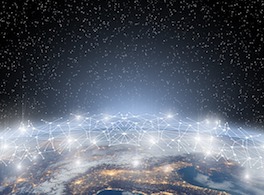This edition of The Web Untangled, a series from The Web Foundation dedicated to unpacking issues core to digital access and rights, looks at Meaningful Connectivity — a new target from A4AI that measures not only if someone has access to the internet, but the quality of connection they have.
Could you live with internet access only on your mobile? Or wait 30 minutes to download a 10 minute YouTube clip? Or only access the internet from a cyber café once every three months?
This is the reality many people face today. While half of the world’s population is online, there are huge differences in the quality of internet people can access.
For many people, life-changing online activities — things like online learning, building a business, creating and sharing content, managing finances, and accessing information about healthcare — are near impossible because they don’t have the digital tools they require.
So what do people need for an internet connection that gives them the power, flexibility, and freedom to use the internet in a transformational and life-changing way?
The Meaningful Connectivity gap, in numbers
1/7 — The median download speed for a user in Africa is more than seven times slower than that for a user in Western Europe — 0.82 Mbps compared to 7.06 Mbps (Improving Mobile Broadband Quality of Service in Low- and Middle-Income Countries, A4AI)
14 minutes, 9 seconds — Approximate amount of time it would take to download a 10-minute standard definition YouTube clip using the median download speed for a user in Africa — jumping to 1 hour, 25 minutes for HD (WhistleOut; Median Outpost)
36.3% — Percentage of households in developing countries that have a computer — compared to 83.2% of households in developed countries (International Telecommunication Union)
4 in 10 — Number of users in emerging economies who go online without access to a computer or tablet at home (Pew Research Center)
$373 USD — Amount the average US earner would pay for 1GB of data if they spent the same portion of monthly income on data as the average African user (A4AI)
Our ambition is to ensure that internet access contributes to development and equal opportunity, rather than becoming yet another means to increase social and economic inequality. To achieve this, we must aim for more than basic universal connectivity.
– Sonia Jorge and Dhanaraj Thakur
What makes a connection meaningful?
Mere access to the open internet is not enough for a useful and empowering internet experience. A meaningful connection is also necessary.
The proposed Meaningful Connectivity target is a first step towards redefining how internet access is measured — to ultimately help policymakers target improved quality of service in addition to expanding reach.
The target’s components outlined below highlight the kinds of challenges policymakers will face on the road to universal access and the improvements required to achieve meaningful connectivity for all.

The right speed
Users need sufficient download speeds to access multimedia and other applications that make up a full internet experience.

An adequate device
Users must be able to both produce and consume content online. Mobile only access is not the same as access via a laptop or desktop, because a full physical keyboard is better suited to content creation and productivity.

Enough data
Lack of data should not stand in the way of individuals fully using the internet based applications they consider important.

Frequent connection
If a user can only connect to the internet every so often, it is less likely to be a meaningful tool for them.
Want to learn more?
To learn more and help us refine the Meaningful Connectivity target, join the A4AI team for a webinar on Thursday 3 October.
Next steps
How fast is fast enough when it comes to download speed? How many gigabytes of data per month are required to fully use the internet? How frequently does a person need to connect?
Stay tuned for our final proposed thresholds based on our research in Colombia, Ghana, Indonesia, and Uganda as we work to test each of the components of the framework and set appropriate targets.
Ultimately, our ambition is to develop a target that can complement existing measures of internet use and guide policy makers towards the actions needed to achieve the targets of meaningful connectivity.
For more updates on our work, follow us on Twitter at @a4a_internet.
